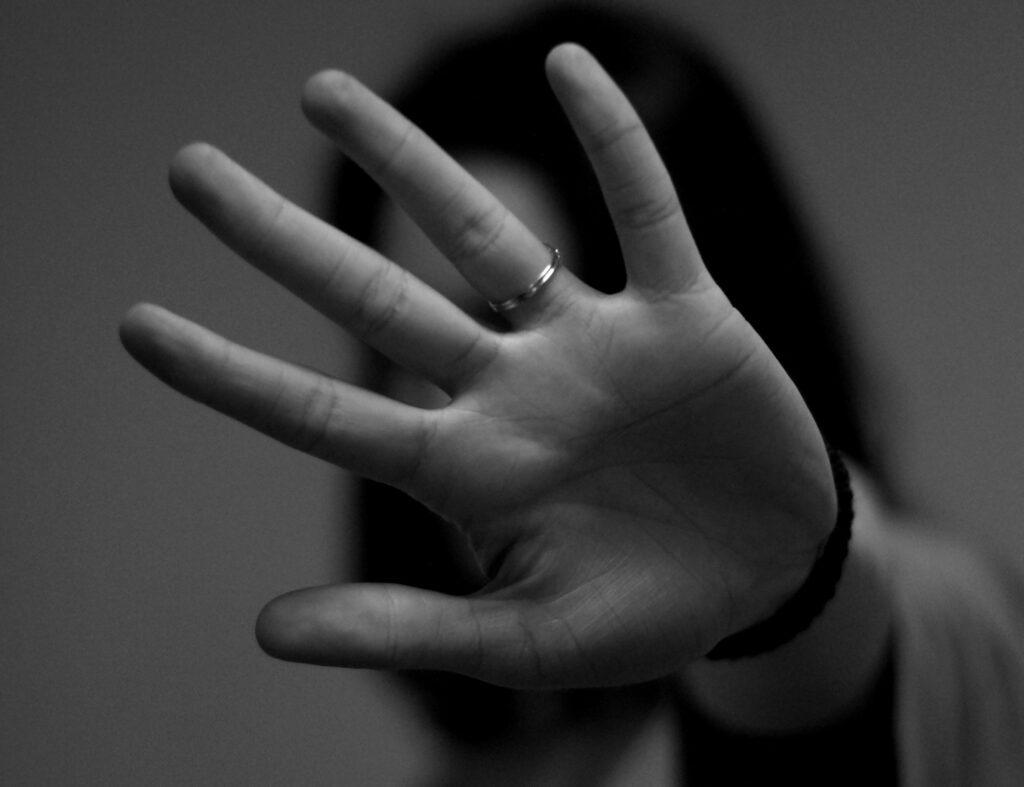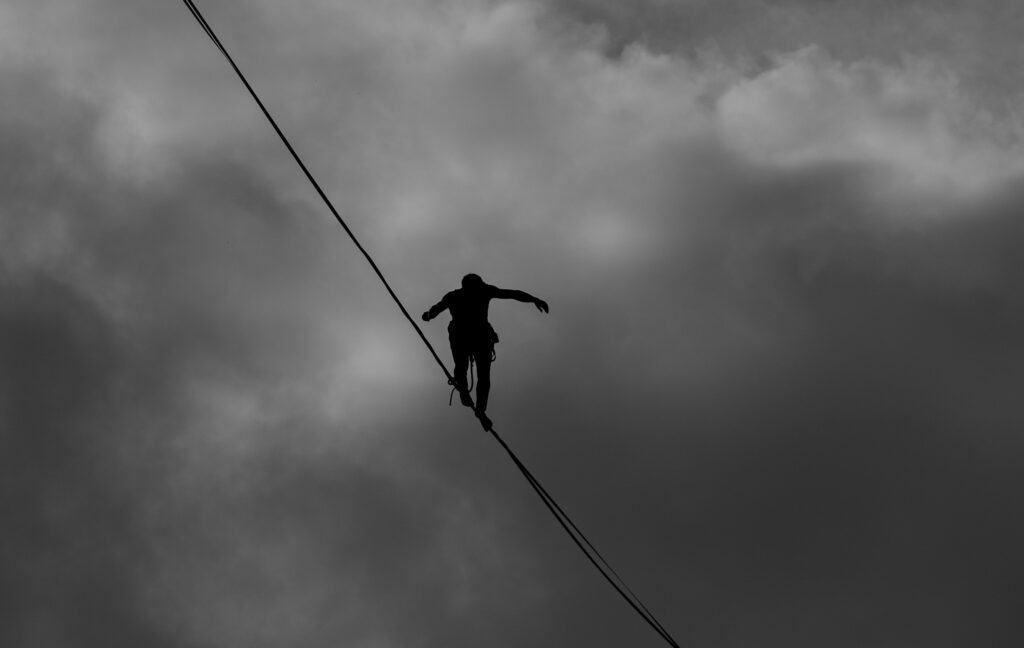
Finding center
Katelyn Hannel shares a few tips on staying sane in the culture wars … with a little help from writers, past and present.
I’ve heard it said that to get to know a person well, one place to start is by looking at their bookshelf. My own is an eclectic assortment of covers collected over various seasons of life – spiritual works by C.S. Lewis and Thomas Merton; childhood favorites; novels of Jane Austen; the life of Maria von Trapp; texts on music, education, psychology, travel, geography, foreign languages, philosophy …
On the philosophy shelf sits a worn copy of Aristotle’s Nicomachean Ethics, from the first-year philosophy course at my university, now more than 10 years ago. I’ll never forget, nor discount, the impact that book had on my life.
Prior to that time, I had pictured philosophy as antiquated or esoteric, and even now it can be portrayed by some as a mere abstract exercise, divorced from real lived experience. But on the contrary, the Ethics speaks relevant truths that directly impact that experience.
Aristotle’s text unpacks the concept of virtue, which he defines as a mean between two extremes. At one extreme is some type of excess; at the other, a deficiency. Between cowardice and recklessness, for example, lies the value we call courage; between boastfulness and false modesty, lies truthful humility. The concept can be applied to any situation, and as a student in philosophy class, seeing the immediate application to the world around me, it just made sense.
Any online dispute can show us the rancorous effects of extremes. When living in a polarized climate, it is easy to run in one direction to avoid the other; and instead of easing closer to the center, or a reasoned compromise, many are driven further and further apart.

In order to approach productive solutions to social, political or ethical challenges, we need a foundational re-grounding, and examples of how to move forward.
One way of conceptualizing Aristotle’s mean is the idea of searching for a ‘both/and’ rather than an ‘either/or’ approach to contentious topics.
This leads to an integration of two distinct concepts that might otherwise appear opposed. The presence of two ideas serves to even the scale, and in doing so, naturally brings us into balance.
I have seen a powerful example of this in the work of the AND Campaign, a Christian organization that seeks to build bridges in the American political sphere by acknowledging where truth is present in both the left and right.
Neither a watered-down faith nor a walled-off faction, its mission rests on the notion that we need both “Compassion (&) Conviction” – deeply rooted values and genuine concern for others – for our reasoning to be fully mature and our worldview to be a cohesive whole. Or put simply, a clear and thoughtful mind and a loving heart.
The integration of mind and heart is a quest for all of us. Imbalance in the world can often be understood as a representation of imbalance within its people – each of us carrying deeply entrenched patterns of thought and behavior which must be recognized and, where necessary, reoriented. Finding center in the world must begin with finding center within oneself. And in order to do so, we need the tools for the task.
As a teacher I have witnessed how many schools have placed a new or renewed focus on social and emotional learning as a necessary foundation of education. The Collaborative for Academic, Social, and Emotional Learning (CASEL) establishes a basic framework for finding our own ‘center’ by offering insights into the domains of self-awareness, self-management, social awareness, relationship skills, and responsible decision-making. Building competencies in these areas, in my experience, enables students, and adults, to better understand themselves and work productively with others.

But back to the bookcase … I take insight from another title on my shelf – The Mindful Catholic by Dr. Gregory Bottaro, a work which makes a unique contribution in showing how spirituality and mental health can coexist. Drawing from sound psychological practice, Bottaro articulates how an understanding of the mind can help us to recognize our thoughts and reactions, many of which are unconscious and some of which even have physiological roots.
We interpret situations through our own conditioned set of filters. When our nervous system perceives a threat – real or imagined – we are likely to react in self-protection mode and cling to simplified ways of thinking.
When we can observe our reactions from the outside, rewire unhelpful thought patterns, and return to a regulated state, our minds can expand to make space for new possibilities, without feeling threatened by where they might lead.
Understanding our own internal reactions, as well as our temperament and communication style, is essential for healthy relationships with others. In today’s climate, relationships can feel more fragile than ever, especially with highly-charged topics where weighty emotions are involved.
Here, a grounding in mindfulness can give us greater clarity, allowing us to see another person and their perspective, without our biases, wounds, or insecurities clouding the view. As Bottaro writes: “Nonjudgmental awareness of the present moment when the present moment includes another person, with his or her own thoughts and feelings, is foundational to truly encountering the other person as he or she really is.”
Ultimately, we also need this approach to stay grounded and at peace amidst our searching. There is no roadmap telling us what to do in each particular situation, and it can often be difficult to discern how we are called to respond.
Sometimes the virtuous action is the bold move; sometimes, the gentle one; as Aristotle proposes, doing the right thing, at the right time, in the right way. But how do we know what comes when?
In broader culture, voices shout at us from all sides. The soundbites can often seem wise but also contradictory … Let others educate you; but also trust yourself. The problem isn’t always you; but sometimes it is you. Speak your truth; but no, not that one: how could you dare to speak that? … And so we can go round and round in a swirl of chaos, perhaps finding ourselves asking, like Pontius Pilate: “What is truth?”
If we seek sincerely, we will often have to recognize that our attempts to find and live in truth are part of a messy, confusing, and sometimes frustrating process. Like putting a golf ball, we can try to estimate the perfect weight with which to tap it; and upon finding a stroke too light, add more strength, only to then watch it go straight past the hole. When the consequences of missing the philosophical or social target can include fractured relationships, or public defaming and deplatforming, these moments can be a source of great anxiety – or at least they have been for me.

I have watched close relationships in my own life crumble under the weight of unresolved differences: the path can feel like the narrowest of tightropes, where the slightest slip to one side can send us hurtling down a long, dark precipice.
But let’s never forget that maybe the fall is only as far as we make it.
Perhaps these moments of stress are yet another opportunity to examine our own fears and re-orient our vision.
Try as we might to reach the perfect mean, the perfect center, no human being will ever achieve perfection – and even if we could, it still would not solve every problem or heal every wound.
Let’s remember: not everything depends on us. When our efforts fall short, or are simply not well received; when we don’t know if we’ve done the right thing; when we look out at brokenness in the world, brokenness in those we love, or brokenness in our own selves, wisdom helps us to see more clearly what is ours to solve and what is not. It frees us to move forward, praying, as many have before, “God, grant me the serenity to accept the things I cannot change, courage to change the things I can, and wisdom to know the difference.”
With this wisdom we see more clearly the good that is ours to do in the present. We can measure our actions not by the standards of a frenzied society, but by the extent to which they bring about love, joy, peace, patience, kindness, generosity, faithfulness, and self-control.
When we learn to cultivate a deeply-held interior peace – or at least, when we continue to seek and strive for it – we will transmit that peace to others, even in the smallest moments that no one else might see.
And so indeed, a better world begins with a better self – a self that works to find its center, a process which, if truly pursued, will last the course of our lives. Our perspective continues to evolve over time, never finished, because we’re not finished – always growing and gaining another new insight into how we are called to manifest truth and goodness in the world.
And as we do, we can choose to trust that sincere and humble efforts to do good will never go to waste. This type of freedom, when truly embraced and embodied, transcends what can be found in any book.
Like what you’ve read? Consider supporting the work of Adamah by making a donation and help us keep exploring life’s big (and not so big) issues!
Katelyn Hannel
Katelyn Hannel writes from just outside of Washington, DC, in Arlington, Virginia. She is a school music teacher and choir director in the Diocese of Arlington, a pianist and singer, an ardent traveler, and a seeker of wisdom in daily life. She values having a foot in both the sacred and secular worlds, as it has given her opportunities both to deepen her own faith and to build wider circles with others. She is passionate about connecting faith to lived experience, and helping her students find their paths to become self-confident, happy, and fulfilled.

